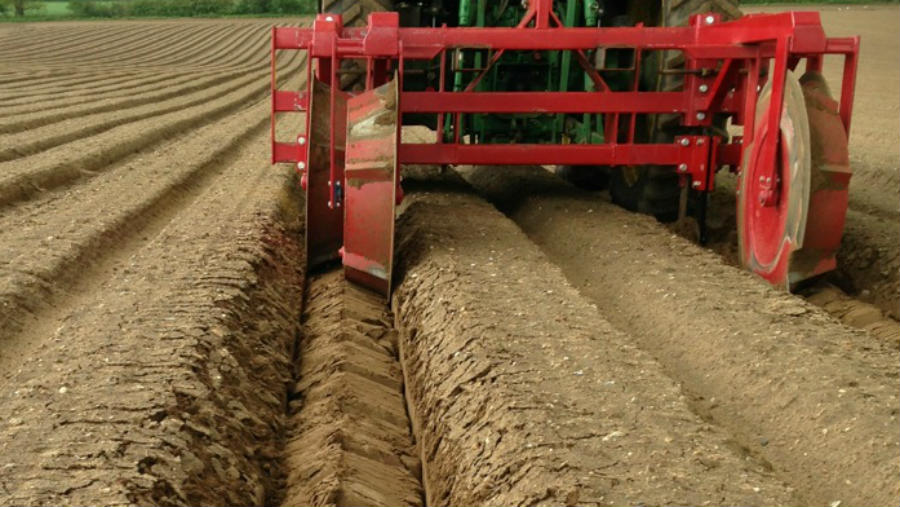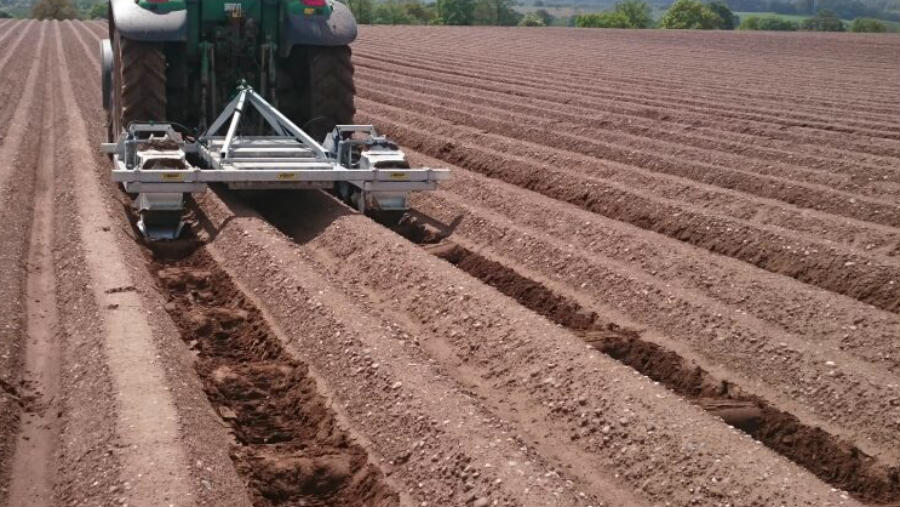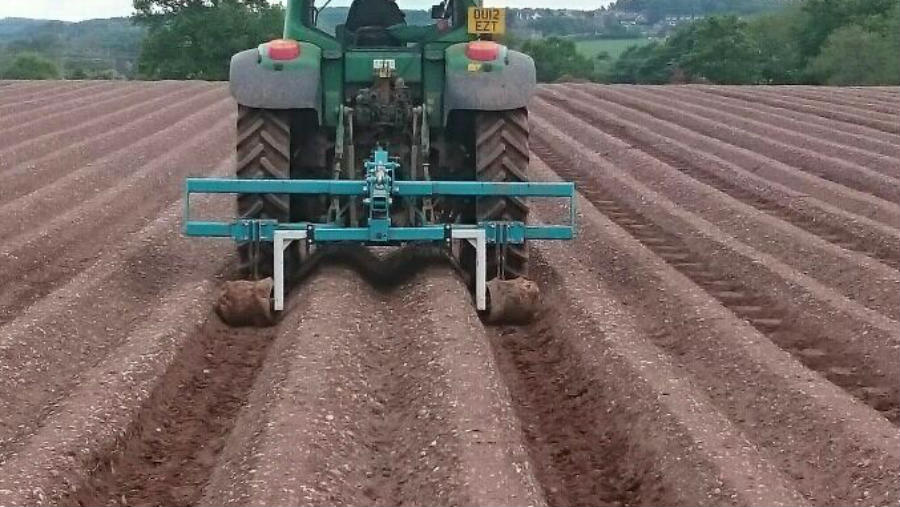Work under way to slash water wastage in potato fields
 ©AHDB
©AHDB Tramline compaction is causing potato growers to waste up to 14% of the water falling on their fields, and also risks nutrient and spray pollution into the environment.
Water flowing down tramlines following rainfall or irrigation is an all too common sight in potato fields, as significant compaction is caused by destoning and planting machinery passing over land which has been worked up into a fine tilth.
Furthermore, reducing tramline run-off could allow farmers to reduce their water use, which can offer valuable savings given that irrigation can cost up to £1,200/ha in a season requiring 10 passes.
See also: How to maximise nematode egg kill with biofumigants
That’s why three different machines are being put through their paces on the 9,100ha Elveden Estate in Suffolk, one of the AHDB’s Strategic Potato (Spot) farms, as part of their demonstration offering for this season.
The Creyke wheel track roller has a leading tine leg to make a shallow channel for water to flow in before meeting fissures created by a plastic roller following behind, while the Briggs tied ridger uses a heavily ballasted rig to press a paddle wheel into the soil, forming dams.
The trio is completed by BYE Engineering’s wonder wheel machine, which again is heavily ballasted and has two ridged wheels running in the tramline making a notched, peaked ridge to direct water into the beds on either side.

The tied bed ridger from Briggs causes water to sit in dams rather than flow down tramlines ©AHDB
Mark Stalham, senior research associate with Niab Cuf, who is overseeing the experiment, explains that any field with just 2% slope will lead to run-off, while a field with a 5% slope can be considered medium risk.
He explains the best time to do the work is as close as possible to the time irrigation begins in order to have the soil shaped to preserve as much water as possible, although growers will be eager to get it done prior to emergence to avoid plant damage, which may mean the dams start to break down.
As well as measuring the water and silt run-off from each trial plot, he hopes that the experiment will demonstrate whether or not going in post-emergence and causing some crop damage will be cost effective by showing that the additional water usage has a positive effect on yield.

The Creyke wheel track roller has a leading tine leg followed by a plastic roller to shape the soil©AHDB
Challenging trial location
He says Elveden is a good location for the experiment as the light land is the most challenging environment for the machines to be effective, as the dams tend to stick around longer on heavier soil.
Senior farms manager Andrew Francis, who oversees operations on the 3,640ha of in-hand farming operations on the estate, as well as an additional 1,011ha of rented land, says the responsible use of water is one of his biggest concerns.
The estate grows 470ha of potatoes split between white salad varieties, such as Maris Peer and Juliet for packing, and early and late processing varieties like Royal and Russet Burbank.

The Wonder Wheel from BYE Engineering leaves a peaked ridge ©BYE Engineering Ltd
Mr Francis explains they typically make eight to 10 irrigation passes per year on the sandy soil over chalk for the control of common scab at a cost of around £120/ha per pass, but the business is constantly under pressure to achieve the same level of control with less water.
He says any opportunity to either cut water use or demonstrate to critics that they are taking every step possible to minimise pollution would be very welcome.
Also on display for farmers at Elveden open days through the summer months will be an opportunity to take a look at trials for optimising the timing of irrigation for scab, herbicide trials focused on how best to replace linuron, and manipulating tuber numbers.
The farm is one of four Spot farms currently in operation, with three spread across England and one in Scotland.
More information on the farms and timing of open days can be found on the AHDB Potato website.

